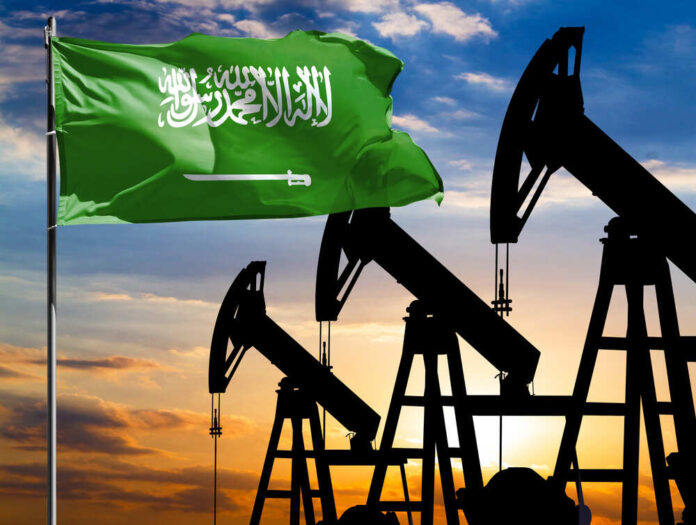
Saudi Arabia rattled the world’s oil markets by announcing on Sunday even more oil production cuts. The world’s number one oil exporter extended April’s 500,000 barrels per day reduction and tacked on an additional one million barrels that will not reach the market.
The earlier cut was extended by Riyadh through the end of the year.
This news sent oil prices higher around the globe, with Google Finance reporting the benchmark Brent crude up 1.61% on Monday.
Saudi Arabia’s Energy Ministry announced the voluntary slashing of production will begin in July. It will take the Kingdom’s output down to nine million barrels of oil per day.
The one million barrels slashed from production is expected to last for a month, though the statement said that the time period could be extended. OPEC+ in April cut production by a million barrels daily, which was tacked onto the two million barrel drop that began last October.
Gas prices — which are still $1.16/gal higher today than when Biden took office — could go even higher amid Saudi Arabia's cuts to oil production.
"It really brings into question, though, Biden's trip to Saudi Arabia and the goal of that — and look what has happened since." pic.twitter.com/k8osCBTcJx
— RNC Research (@RNCResearch) June 5, 2023
The cut marks the largest in years for Saudi Arabia. The Kingdom acted outside of OPEC+ to further shore up oil prices, which have come under downward pressure for several months after reaching historic highs.
The consortium produces roughly 40% of the world’s crude supply and has slashed its overall output by 3.66 million barrels per day. That equals 3.6% of the international demand for crude oil.
Energy analysts cite mixed signals from markets on Monday as they reacted to the news of the Saudi production cut. Phil Flynn of Price Futures Group noted that oil took the news “very bullish,” though he explained the market is still determining the impact of the reduction.
Despite the Monday bump that followed another 2% rise on Friday, SEB analyst Bjarne Schieldrop called the reaction “relatively muted.” He noted that the previous cuts by OPEC+ failed to push prices higher for very long.
Goldman Sachs experts classified the response as “moderately bullish” in oil markets. They predicted Brent crude prices by the end of the year could rise an additional $1 to $6 per barrel depending on how long the Saudis maintain their lower output.
The real-world effects of production cuts are difficult to gauge and many times have limited impacts on global prices.





























